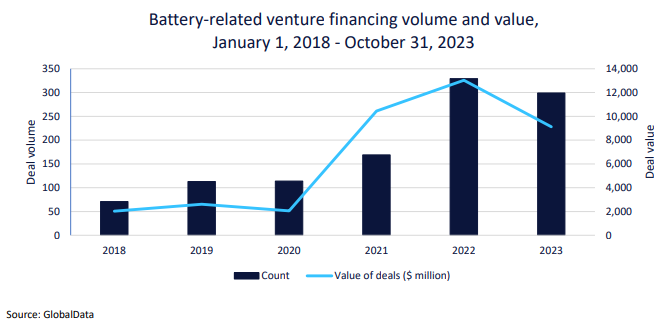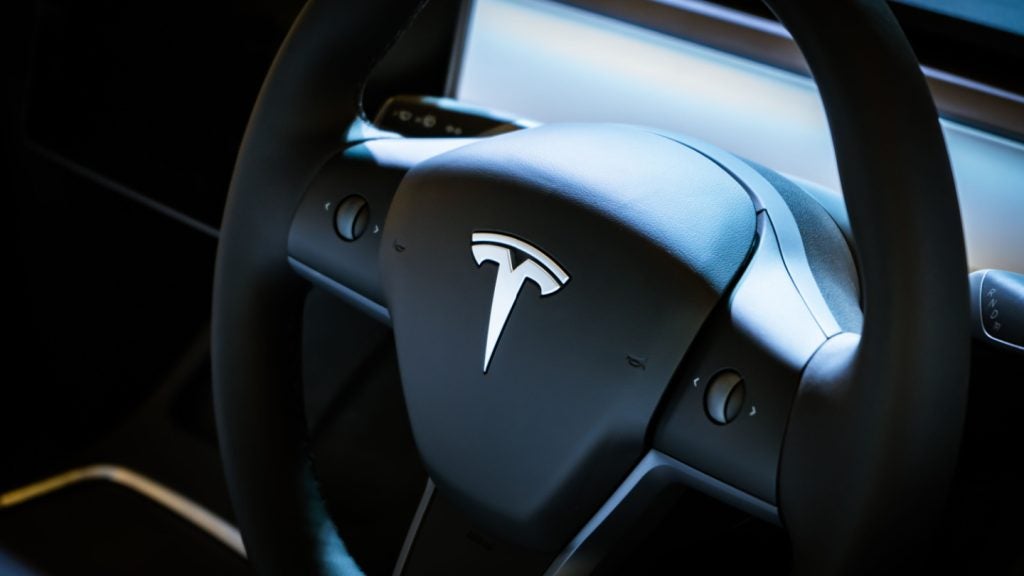Tesla is close to securing a deal with the Indian government that would enable its electric vehicles (EVs) to be easily imported into the country. In addition, Tesla is also looking at building an Indian EV manufacturing plant, anonymous sources with knowledge of the matter have said to Bloomberg.
The deal could be announced as soon as January 2024 at the Vibrant Gujarat Global Summit.
Tesla has also speculated that the company plans to move its battery production to India in order to cut production costs.
In January 2023, India also announced phase two of its Faster Adoption and Manufacturing of Electric Vehicles government initiative providing subsidies to encourage the adoption of EVs in the country.
Research analyst company GlobalData’s 2023 thematic intelligence report into batteries found that venture financing for EV batteries is steadily declining despite an initial boom post 2020. Venture financing into EV batteries nearly doubled between 2021 and 2022, with the value of these deals increasing by about 25%.

Mounting geopolitical tensions between the US and China is cited by the research company as the main reason behind EV manufacturers beginning to diversify their supply chains.
GlobalData’s report also forecasts a potential short and severe battery shortage by 2025 as demand for EVs rocket due to the introduction of legislation banning the sale of combustion-powered vehicles. A shortage of critical minerals needed to create these batteries is also forecasted.
Due to this, EV industry leaders like Tesla will need to invest in battery recycling schemes.
Rising ethical concerns about the mining of critical battery minerals may also power investment into battery recycling.
Research fellow at Harvard’s School of Public Health Siddharth Kara stated that the demand for EVs was creating modern day slavery in interview with NPR in February 2023.
“We shouldn’t be transitioning to the use of electrical vehicles at the cost of people and environment of one of the most downtrodden and impoverished corners of the world,” Kara stated, “The bottom of the supply chain, where almost all the world’s cobalt is coming from, is a horror show.”
Our signals coverage is powered by GlobalData’s Thematic Engine, which tags millions of data items across six alternative datasets — patents, jobs, deals, company filings, social media mentions and news — to themes, sectors and companies. These signals enhance our predictive capabilities, helping us to identify the most disruptive threats across each of the sectors we cover and the companies best placed to succeed.









